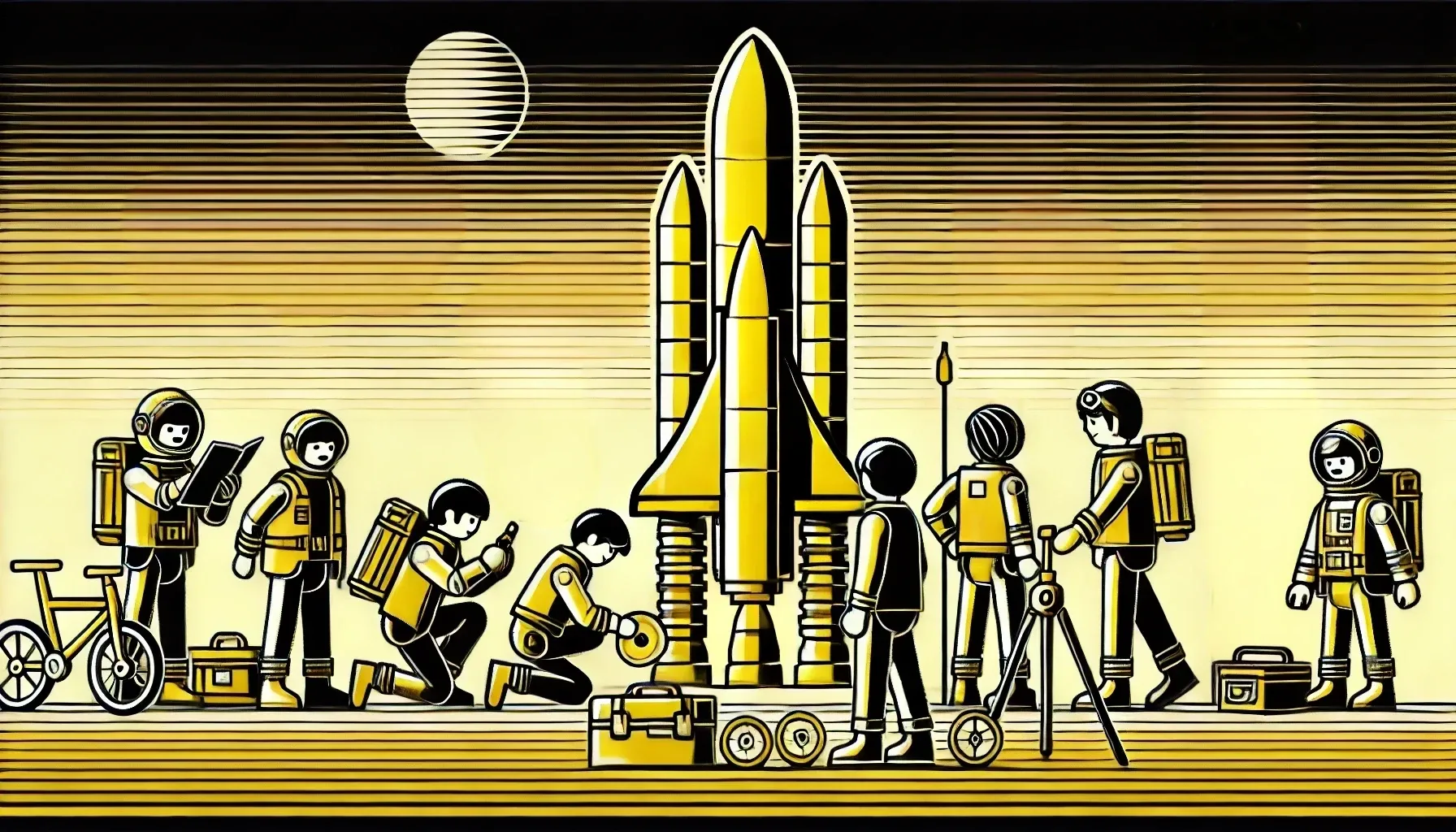What to Know Before Tomorrow's Blast Airdrop

It's almost... finally... just about here.
Ethereum’s Blast L2 has been one of the more innovative protocols when it comes to incentive models for bootstrapping deposits and user activity. They've been very successful thus far, enabling the network to accumulate over $2B in total value locked (TVL) and become the second-largest L2!
While Blast has transformed into a Goliath among L2s, the imminence of its airdrop – scheduled for tomorrow, June 26 – raises undeniable concerns about the network’s future in the aftermath of this much-anticipated event.
Today, we’re digging into what we know about the airdrop and unpacking the dilemma Blast faces in the post-drop battle to retain existing users and their capital! 👇
What's Happening with Blast?
Many early Blast depositors were shocked when they received a points multiplier instead of liquid tokens at mainnet launched in February, and despite promises to conduct a drop sometime in May, this date was subsequently delayed to June 26 (tomorrow!) for unknown reasons.
Although Blast had not provided complete tokenomics until today, it had committed to setting aside half of the nebulous initial airdrop allocation to recipients of “Points” and the other half to holders of “Gold.” Further, Blast introduced “Jackpots” to distribute Gold to users; wallets could enter a “deck” of up to eight Blast-native tokens or NFTs into these randomly occurring events to receive Gold if one of their selected items is chosen as the Jackpot winner.
Needless to say, it's been a long, winding road filled with a lot of leaderboards and incentive charades. But now, after all this time, the team finally has to deliver on its airdrop.
$BLAST launches tomorrow at 10AM EST.
IT’S TIME FOR $BLAST
— Blast (@Blast_L2) June 25, 2024
The Blast Foundation will airdrop BLAST to the community tomorrow, June 26 at 10AM EST, 10PM HKT, 4PM CET.
Q2 highlights and tokenomics below 👇 pic.twitter.com/iH1SxCQ6uN
Who's Getting Blast's Airdrop?
Blast’s success has primarily hinged on users’ perceptions that interacting with the network will position them to receive lucrative token rewards, making it imperative for Blast to conduct a well-received airdrop to maintain its market dominance.
Although a monster initial airdrop allocation would certainly make users feel valued for their past activities, it would diminish the value of future airdrop incentives and dilute the potency of this airdrop farm. Alternatively, too small of an initial drop risks aggravating users and unraveling the belief that unclear BLAST allocation schemes are worth chasing.
In total, Blast reserved 50% of the total 100B BLAST supply for the community, with 17B of these tokens – roughly one-third of the total community allocation – set to be distributed through the initial, or Phase 1, airdrop.
Blast founder Pacman’s Blur NFT marketplace will receive 3B BLAST to fulfill airdrop promises made to participants in the platform’s Season 3 program and to fund future incentive campaigns, meanwhile the remaining 14B BLAST from the Phase 1 airdrop will be split evenly between Blast Points and Gold holders.
The top 0.1% of airdrop recipients, about 1k addresses, will have to vest a portion of their airdrop linearly over 6 months and will be subject to minimum monthly Points thresholds based on their Phase 1 activity to fully vest their allocation – a clear effort to keep whales and their capital involved in the network's future.
BLAST IS AIRDROPPING 17% OF SUPPLY.
— BOBBY BIG YIELD (@BobbyBigYield) June 25, 2024
MOON DAT 🫡 pic.twitter.com/rcBqnBql4z
An additional 8B BLAST subject to a 4-year linear unlock was granted to the recently established Blast Foundation, an organization intended to help the community realize the “Blast Vision,” further details of which are scheduled to be unveiled tomorrow alongside the airdrop.
The remaining 42% of the BLAST supply will go towards insiders, with core contributors and investors receiving 25.5B and 15.5B tokens, respectively; 25% of these tokens will unlock 1 year following token generation, followed by 3 years of monthly linear unlocks.
Can Blast pull it off?
Tomorrow is a critical day for Blast and should serve as a gut check for the airdrop meta at large!
This airdrop is a live test to explore whether a crypto protocol can truly achieve success solely through its implementation of a masterful airdrop incentives program.
Although it is impossible to predict how Blast depositors will react to their airdrops – or lack thereof – it is clear that the protocol is committed to retain the competitive airdrop advantage it holds over alternative L2s and will implement numerous tactics to to safeguard the attractiveness of future BLAST incentives.
Should the Blast airdrop recipients be largely comprised of mercenary capital that instantly exits the L2 in search of greener pastures, both the fundamental cases for Blast and its token price would take major hits, devaluing future incentives and revealing an unsustainable model.
On the other hand, a successful initial drop would build an outsized aura around the network and likely attract an increased amount of users and capital seeking to farm future incentives to Blast, turbocharging onchain metrics, bolstering the valuation of BLAST, and increasing the attractiveness of this opportunity!
Which future awaits Blast? We'll have a good idea in a few hours!